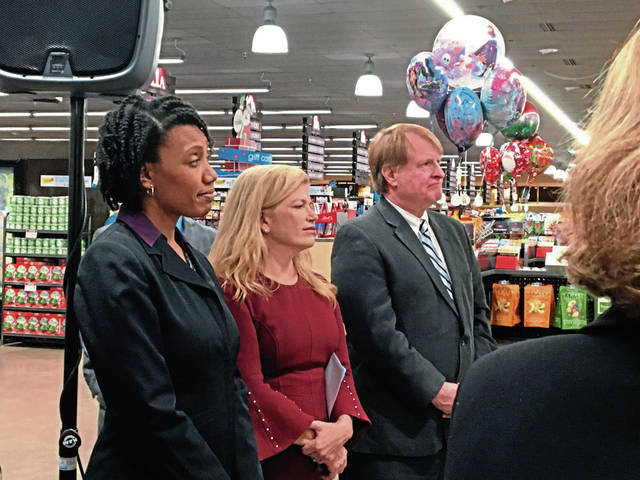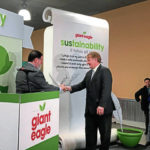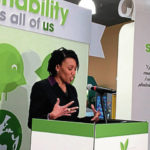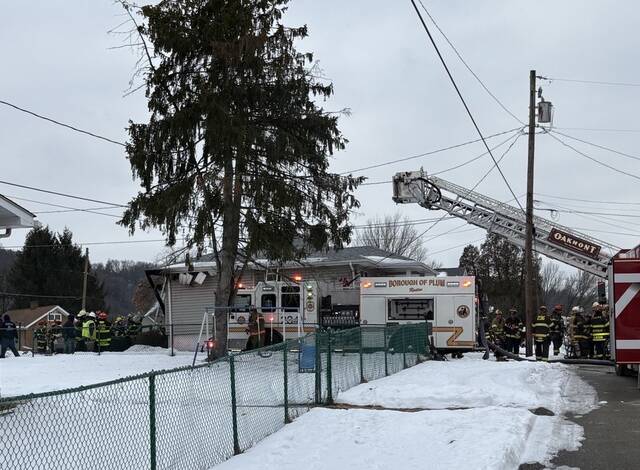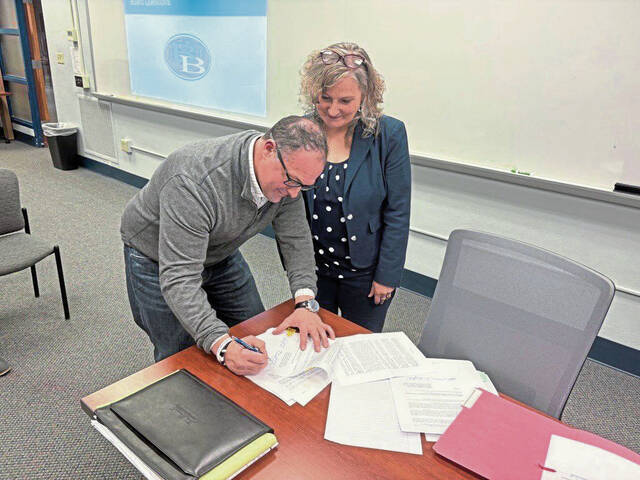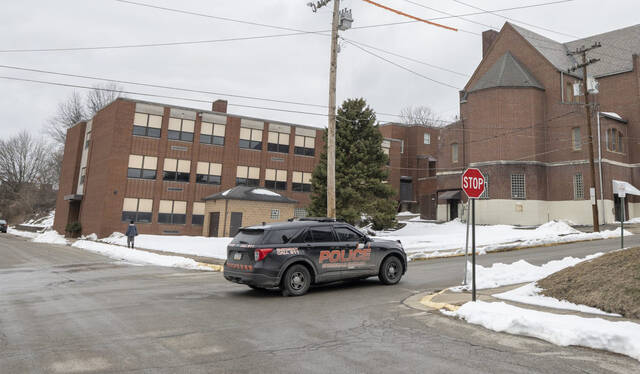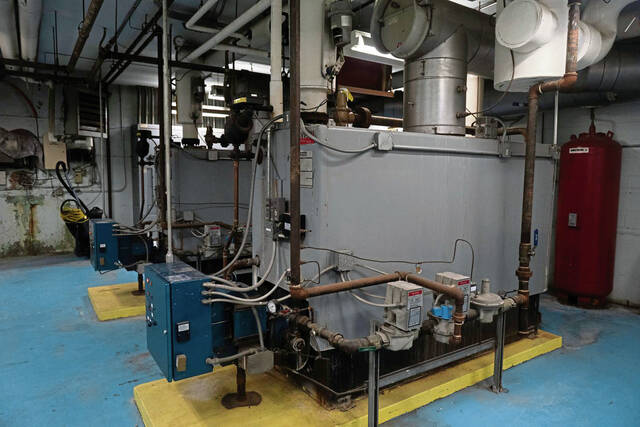Giant Eagle announced plans to get rid of single-use plastics by 2025, aiming to keep flimsy shopping bags and fresh food containers from clogging oceans and rivers and piling up on land.
The O’Hara-based retailer, in partnership with the City of Pittsburgh and Sustainable Pittsburgh, unveiled its plan Tuesday during an event at the Market District in The Waterworks along Freeport Road, near Aspinwall.
“Some days you get to make a real difference in this world,” Giant Eagle CEO Laura Shapira Karet said. “This is one of those days.”
Karet joined Pittsburgh Mayor Bill Peduto, Allegheny County Executive Rich Fitzgerald and Sustainable Pittsburgh Executive Director Joylette Portlock to announce a pilot program that will get underway in January at the Waterworks store, along with the nearby GetGo in O’Hara. The program also will launch at two stores in Ohio.
“Everything comes from somewhere and ends up somewhere,” Portlock said. “We can’t actually throw things away. There is no away.”
Beginning Jan. 15, the targeted stores will eliminate plastic bags at registers. Instead, reusable bags will be for sale at each register, and stores will charge a 10-cent fee per paper bag.
Giant Eagle spokesman Dan Donovan said customers who pay with SNAP and WIC will not be charged the paper bag fee.
Beginning today, there is also a limited-time offer of one perk for each reusable bag used.
The goal is to be free of single-use plastics by 2025 in all of its 474 stores in Pennsylvania, Ohio, Maryland, Indiana and West Virginia.
That includes shopping bags, straws, single-serve fresh food containers and bottled beverages, among others.
“When my great-grandfather and the four other founders started Giant Eagle nearly 90 years ago, they wanted to improve life for people in their communities,” Karet said. “Protecting our planet for future generations is a critical way we uphold this commitment today.”
Americans use 14 billion plastic shopping bags each year, Donovan said. According to the website EarthDay.org, 4 trillion plastic bags are used annually worldwide.
Most end up in landfills. Ninety-nine percent of the bags are discarded, clogging waterways, harming wildlife and putting pressure on municipal waste streams.
Giant Eagle leaders over the next six months will outline a strategic plan to mitigate the environmental impacts of plastics, waste and carbon emissions. The pilot will be studied by Carnegie Mellon University.
“I’m tentatively very excited,” said Danica Buchanan-Wollaston, with Pittsburghers Against Single-Use Plastics. “I want to make sure that the alternative is sustainable.”
The initiative was spurred by state legislation approved earlier this year that enacted a one-year moratorium on plastic-bag bans while the impacts are studied.
Since 2014, eight states have banned single-use plastic bags. They are California, which led the charge, as well as Connecticut, Delaware, Hawaii, Maine, New York, Oregon and Vermont.
With estimates that 2 million plastic bags are distributed worldwide per minute, there is a growing global trend to quash the impacts through bans or taxes.
Washington, D.C., was one of the first to employ a 5-cent plastic bag tax, the revenue from which benefits the Anacostia River Clean Up and Protection Fund. Money also is used to give reusable bags to low-income residents.
Peduto said city residents over the next three years will get bins to replace the blue Giant Eagle shopping bags that have become synonymous with collecting recyclables.
“The success will be dependent on the community,” Karet said.
For details, visit gianteagle.com/allofus



